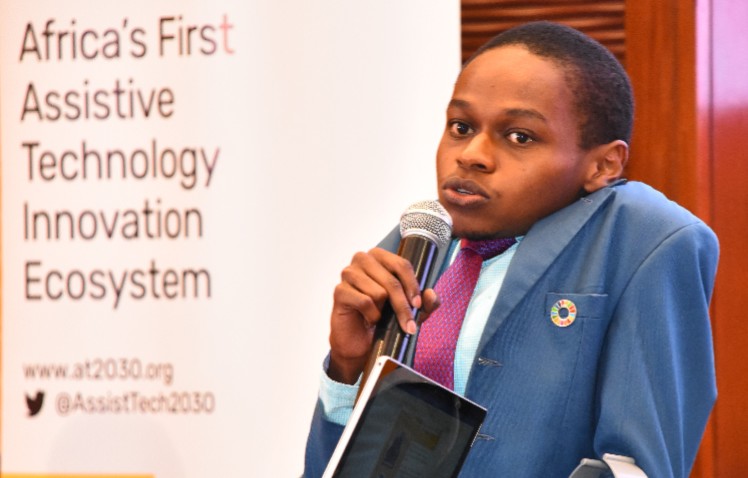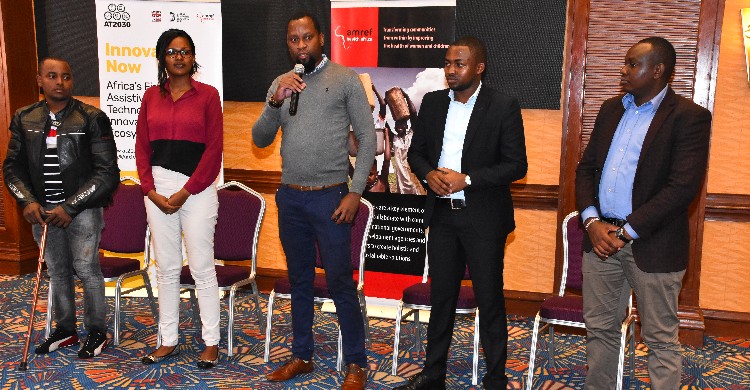Africa: Call for mobile apps for the disabled

Africa’s first Assistive Technology Accelerator is seeking applications from innovators across the African continent who are dedicated to developing mobile based technologies designed to assist people living with disabilities.
The UK Aid-funded program, which is run by Global Disability Innovation (GDI) Hub and Amref Enterprises Limited, hopes to accelerate 12 start-ups in its second cohort, with a focus on solutions that will leverage mobile technologies to enable persons with disabilities access information and navigate daily life with independence and dignity.
The second intake’s theme – Mobile and Assistive Technology (AT) – is in response to research indicating that mobile technology can increase access to assistive technologies, information, digital products and services for people with disabilities.
This is especially true in Africa, a rapidly digitising economy where numerous basic services and products are available via mobile phone in countries such as Kenya, South Africa and Nigeria.
“The mobile device and associated mobile technologies have tremendously improved access to information, goods and services for people from all walks of life, including persons with disabilities. Innovate Now Cohort 2.0 aims to support ventures that are leveraging this disruptive technology to improve functioning, independence and well-being of persons with disabilities in Africa,’’ noted Bernard Chiira, Director – Innovate Now.
According to a study on mobile disability gaps published by the GSMA, mobile phone ownership among persons with disabilities is high, with approximately 82% of adults with disabilities in Kenya owning a mobile phone for example.

Although persons with disabilities are less likely to own a mobile phone than non-disabled persons, those with access to mobile devices perceive the handsets to be useful for accessing features such as education and financial services.
“The independence and well-being of persons with disabilities is critical. Assistive technologies are central to ensuring that persons with disabilities can continue to thrive. It is my desire to see innovations supported by Innovate Now turn into big businesses that will not only make mobility easy, but create employment for our people,” said Senator Isaac Mwaura, Chair – Innovate Now Board.
Applications for Cohort 2.0 can be submitted online until June 8. Innovate Now is also inviting submissions for mobile technology-based innovations that seek to provide solutions to help persons with disabilities during times of crisis such as the COVID-19 pandemic.
Selected finalists will participate in a rigorous 3-month virtual start-up acceleration program that will run from July to September 2020, during which they will have access to the Innovate Now Live-Lab Network where they can engage persons with disabilities in the product development process.
The participants will also have access to mentorship from experts such as Rhys Williams and Catherine Holloway from GDI Hub; Anne Lawi, Country Director – Pangea Accelerator; Maurice Otieno, Executive Director – Baraza Media Lab, and Robert Yawe, Managing Director – SynapTech Solutions, among others.
At the end of the program, the start-ups will present their innovations to a select audience of investors and world leading institutions with the aim of scaling them to reach the populations that need them most.
Last year’s 5 finalists are preparing to pitch at the Innovate Now Virtual Demo Day to be held on June 4, 2020, during which various investments will be announced.
Innovate Now is part of the AT2030 Program. It is Africa’s first Assistive Technology Innovation Ecosystem and Start-up Accelerator and is implemented by Amref Enterprises Limited (AEL) and led by the Global Disability Innovation Hub.
The Accelerator aims to support 60 start-ups, 15 of which will be scaled up over the next 3 years.
With statistics showing that close to 1 billion people globally do not have access to Assistive Technology and the gap is likely to double by 2050, the accelerator program seeks to close the gap that exists between persons with disabilities and access to assistive technologies.
African Press Organization

